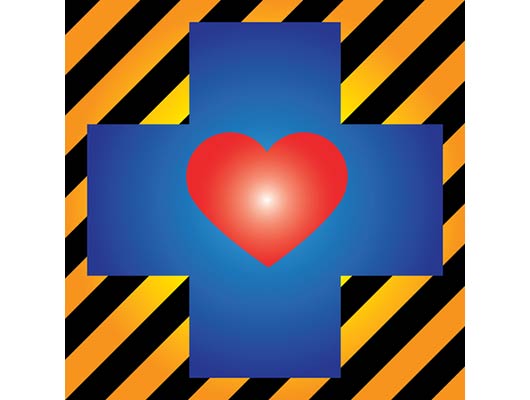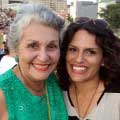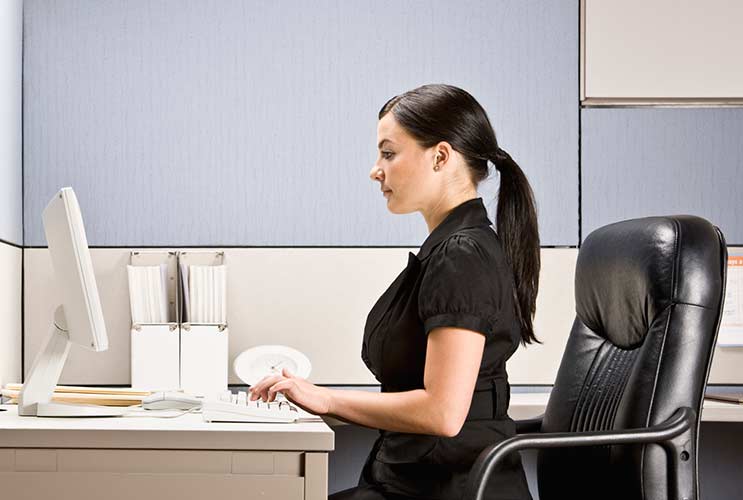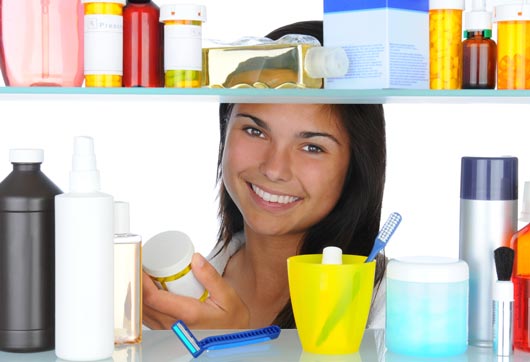
Medicine cabinets should always contain basic first-aid and OTC medication. It’s important to regularly take inventory of your supplies and restock before things run out. You’ll save yourself late-night emergency drug store runs, sleepless nights and possibly a doctor visit by nipping ailments in the bud when you’re able to treat them on the spot. Make it a habit to throw out anything that’s passed its expiration date. According to FDA pharmacist, Lisa Bernstein, “Expiration dates on medical products are a critical part of determining if the product is safe to use and will work as intended.” They really are there for a reason.
Now take this checklist and head out to fully stock your medicine cabinets with these 10 must-haves.
1. Pain Reliever
You should have at least one of the three biggies — aspirin, ibuprofen, acetaminophen — for pain relief, fever reduction and anti-inflammatory purposes. It’s actually a good idea to have more than one option since some people have sensitivities to certain ones and some are better for different types of pain than others.
Read Related: 7 Medicines You Should Never Give Your Children
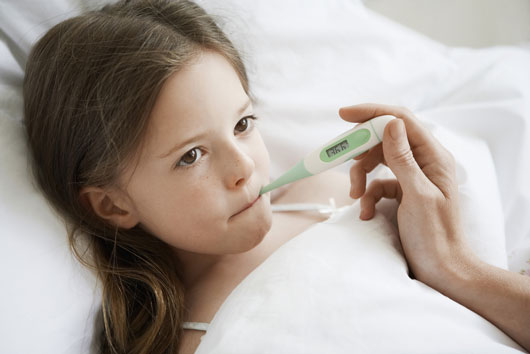
2. Thermometer
This needs no explanation. You must have a reliable thermometer in your medicine cabinet, especially if you’ve got very young children.
3. Disinfectant
It’s vital to clean wounds immediately to avoid infection. You should have both rubbing alcohol and hydrogen peroxide.
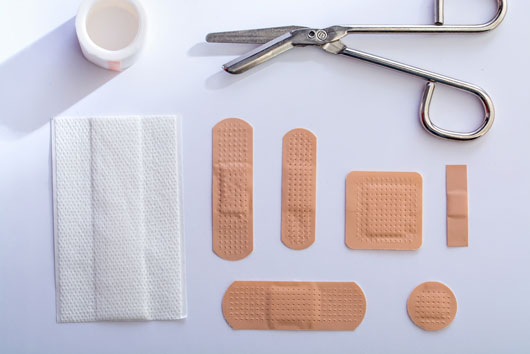
4. Bandages
Keep a variety of bandages on hand. Adhesive strips are probably used the most but you should also have gauze pads, medical tape, butterfly and ace bandages.
5. Tweezers
In addition to cleaning wounds, you also have to remove any foreign objects that may cause irritation or infection. And of course, you need them for splinters.
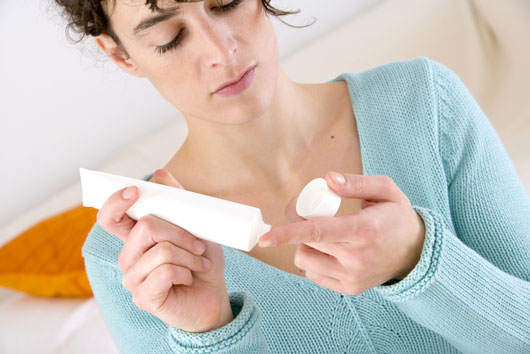
6. Antibiotic Ointment
Once the wound is clean, antibiotic ointment prevents infection and speeds healing. You may want one that contains a topical pain reliever too.
7. Anti-Itch Lotion
Medicine cabinets should contain a couple of different itch stoppers. Hydrocortisone is excellent for treating small rashes and bug bites. For larger allergic reactions Benadryl Anti-Itch Gel contains a topical antihistamine.
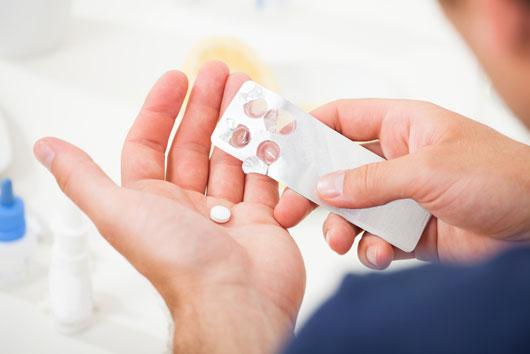
8. Anti-Diarrheal
Nothing is worse than having to run (No pun intended!) to the store in the midst of a bout of diarrhea. Yours or your child’s.
9. Allergy Medication
Diphenhydramine (Benadryl) tablets are a life saver during allergy season but they cause drowsiness so you might also want to have a non-drowsy option like loratidine (Claritin), fexofenadine (Allegra) or cetirizine hydrochloride (Zyrtec).
10. Activated Charcoal
Ipecac used to be recommended to induce vomiting for accidental poisoning but you should absolutely NOT use it anymore. Instead keep activated charcoal on hand. BEFORE YOU ADMINISTER ANYTHING, contact Poison Control (1-800-222-1222) or go to webPOISONCONTROL for online instructions. If the person loses consciousness, has trouble breathing or has a seizure call 911 immediately.

